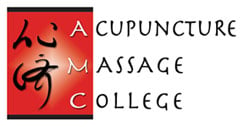Thirty percent of seniors over the age of 65 living in a community fall every year. An additional 50 percent of the same age group living in long-term care facilities suffer from at least one fall annually. One in 10 of these falls results in a fracture. Although any exercise is an effective intervention for fall prevention, one of the rapidly emerging exercise forms recommended by an increasing number of medical professionals is Tai Chi.
Tai Chi Chuan, or Tai Chi, is a Chinese martial art derived from Taoism that dates back to the 13th century. Tai Chi is the most prominent Chinese martial art of the internal style, which emphasizes breathing and the mental component of training. Tai Chi exercises consist of fluid, gentle, graceful movements that are slow in motion, making it appropriate for any age group.
Tai Chi improves blood circulation, strengthens and mobilizes joints and muscles and significantly improves physical fitness. Tai Chi participants are more alert, flexible and physically active, all positive factors that can improve balance and reduce the risk of falling.
To observe how Tai Chi is capable of assisting elders, Fuzhong Li, Ph.D. and colleagues from the Oregon Research Institute conducted an in-depth study. The Li Study included 256 physically inactive adults, ages 70-92. All subjects could ambulate independently and had no cognitive impairments. Each participant was randomly assigned to either a Tai Chi group or a stretching group. Both groups attended a six-month training program that consisted of a 50-minute exercise session given three times per week.
For the Tai Chi group, certified Tai Chi instructors led sessions using the 24-Form Yang style, a style focusing on weight changes in multiple directions and motor coordination. The stretching group participated in low-intensity, low-impact exercises, including standing and seated stretches, deep abdominal breathing and relaxation exercises.
Three functional balance assessments were administered to each of the participants at baseline, three months into the program and after the program's completion. An additional assessment was administered six months after completion of the program to determine long-term results.
Study findings indicated the functional balance of members of the Tai Chi group improved significantly in all three measurements during the intervention period, whereas the stretching control group showed no such improvement. Only 28 falls were reported during the post-intervention period for the Tai Chi group, compared to 74 falls in the stretching control group. Balance scores declined in both groups following program completion, but members of the Tai Chi group declined to a lesser degree, showing a slower deterioration in functional balance.
Tai Chi can improve health and fitness levels for people of all ages and has many health benefits including: Increased flexibility, improved muscle strength and definition, increased energy and stamina, and improved coordination. Tai Chi’s aerobic effect increases metabolism and physical conditioning occurs with regular practice.
All Tai Chi forms emphasize rhythmic patterns of movement that are coordinated with breathing and meditation. Breathing in a deep and focused manner improves concentration. Tai Chi movements have a psychological benefit gained by the mind-body link. Tai Chi also boosts the sympathetic nervous system function, which is related to cardiovascular health.
For more information about Tai Chi for health and wellness call Dr. Richard Browne, Acupuncture Physician, at (305) 595-9500.

 (305) 595-9500
(305) 595-9500






